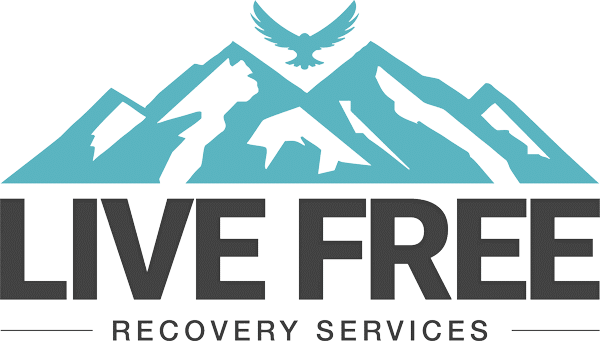In most cases, health insurance will cover at least a portion of your substance abuse treatment. For some individuals, it will cover the entire cost of addiction treatment services. Some insurance companies may only cover treatment at specific facilities, while others may provide coverage for a wider range of options. It’s important to check with your insurance provider to find out what types of treatment are covered under your policy.
Treatment centers that accept insurance can be found for both inpatient and outpatient treatment settings. Inpatient treatment usually requires a higher level of care, and as such, may have a higher price tag. Outpatient rehab is typically less expensive, but it may not be as effective for those with severe substance addiction. Once again, it’s important to consult with your insurance provider to see what type of treatment is covered under your policy.
If you have health insurance that covers substance abuse treatment, you can get the help you need. But, again, it’s important to consult with your insurance provider to see what type of treatment is covered under your policy. Reaching out to your insurance company can help you get a clearer idea of what your benefits include.
You can also contact us here at Live Free Recovery Services. Our team can help you work through the details of your health insurance that covers substance abuse rehab.
Table of Contents
The Need for Comprehensive Treatment Options in the United States
According to the National Institute on Drug Abuse, drug and alcohol addiction is a major problem in the United States, with about 20 million people struggling with some form of substance abuse. Addiction can have a profound impact on every aspect of a person’s life, from their health and relationships to their finances and career.
What’s more, addiction often co-occurs with other mental health conditions, such as depression and anxiety. This can make treatment challenging, as both disorders need to be addressed in order to achieve lasting recovery. In 2020, an estimated 19.2 million adults in the United States lived with a dual diagnosis. Of those adults, only 7.4 million received treatment for both disorders.
Is There Health Insurance That Covers Substance Abuse Rehab?
Many individuals worry about rehab costs. Individuals who are impacted by drug addiction are struggling with limited finances as addiction has already drained those resources. The cost of rehab can also be a more significant barrier to treatment.
Many insurance plans cover the full cost of care or at least offer minimal out-of-pocket expenses. If your insurance only provides partial coverage there are still many resources available to help you get the treatment needed. This includes private pay, payment plans, and personal loan options.
Using Insurance to Cover Substance Abuse Treatment

The Affordable Care Act, or ACA, mandates health insurance coverage for addiction treatment and mental health services. This means that finding health insurance that covers substance abuse treatment is a much simpler process than people may realize.
Individuals who are struggling with substance abuse or psychiatric problems can receive the treatment they need in order to recover and resume their normal lives. By providing access to quality care, the ACA helps to ensure that no one has to go without the help that they need due to cost concerns.
At the same time, the ACA requires health insurance companies to cover a wide range of addiction-related treatments, including partial hospitalization programs and long-term inpatient care. These may include individual and group therapy sessions, medication-assisted treatment, social support, as well as alternative health approaches such as acupuncture and yoga.
This ensures not only that people have access to effective addiction treatment, but also that they have a wide range of treatment programs to choose from depending on their unique needs and goals. Overall, then, the ACA is an essential tool in our ongoing fight against addiction and mental health issues. With its mandate for accessible care, it helps thousands of people every year to overcome their struggles with drugs and alcohol and lead healthy and fulfilling lives.
Does Insurance Cover Mental Health Services or Dual Diagnosis Treatment?
The Mental Health Parity and Addiction Equity Act (MHPAEA) requires health insurance providers to offer the same level of coverage for mental health services as they do for physical health services (like addiction treatment). This means that if your health insurance plan covers hospitalization for a physical health condition, it must also cover hospitalization for a mental health condition.
However, the MHPAEA does not require health insurance providers to cover all mental health services. If you are seeking treatment for a mental health condition and you have health insurance, you should check with your health insurance to see what treatment options are covered. You may also want to ask about insurance coverage for dual diagnosis treatment, which treats both addiction and mental health disorders.
Does Medicaid Cover Addiction Treatment?
Medicaid is a federal program that provides affordable healthcare coverage to individuals, including those with a history of substance abuse. In most states, the Medicaid program covers the full cost of addiction treatment, including an inpatient or outpatient rehab center as well as medication-assisted treatment.
Furthermore, the Affordable Care Act introduced important regulations that require health insurance providers to provide substance abuse treatment coverage on par with other medical services. This means that getting help for substance abuse and mental health issues is easier and more affordable than ever before. Ultimately, if you are struggling with substance abuse or know someone who is, Medicaid can help to ensure that you get access to a high-quality rehab program that gives you the best chance of recovery.
At Live Free Recovery, we offer drug and alcohol addiction treatment using New Hampshire Medicaid. Therefore, the cost of rehab may be free, or at significantly reduced costs at our treatment center. You can contact us today to find out if your specific plan qualifies.
Which Addiction Treatment Services Do Insurance Companies Cover?
The types of treatment your health insurance covers will vary depending on the insurance company, the type of health coverage, the rehab center, and the addiction treatment services that are recommended for your particular substance use disorder. However, most insurance plans will offer partial coverage of some, if not all services.
For example, if you are seeking addiction treatment from alcohol addiction you would need to find a treatment provider that offered alcohol treatment. Services in an alcohol rehab that could be covered by insurance would include the following:
- Thorough alcohol abuse evaluation
- Alcohol addiction detox
- Alcohol treatment program (could be inpatient rehab for alcohol addiction or outpatient or a combination of both)
- Drug and alcohol therapy like individual and group counseling
- Ongoing recovery and medication maintenance program
Any treatment options that are not seen as necessary (as determined by professional medical advice) will probably not be covered by private insurance companies. Many treatment facilities offer some more luxurious amenities, and your health insurance company may require you to pay for those expenses.
In addition, ongoing maintenance treatment programs will also vary among major insurance providers.
What are “Out-of-Pocket” Expenses in Substance Abuse Treatment?
While many types of addiction treatment expenses are covered by insurance plans, there may be additional costs that individuals will have to pay. In general, those who have more comprehensive insurance plans will have lower out-of-pocket costs than those who rely on more limited coverage. These expenses can include:
- Insurance co-pays (sometimes referred to as “coinsurance”): The cost associated with gaining access to a particular service or healthcare provider.
- Deductible: The amount that the insurance carrier pays up to a certain cost before costs are covered by insurance.
- Lifetime limitations: In some policies, insurance coverage is only up to a certain cost and then then the individual must cover the rest of the costs to healthcare providers.
- Premiums: The amount you pay regularly to have an insurance plan.
To be clear, depending on the treatment center and the insurance plan, the cost of rehab will vary.

What Types of Insurance Plans Does Live Free Accept?

Here at Live Free Recovery Services, we accept various types of health insurance that cover substance abuse rehab. If you have a policy with any of the following health insurance companies, contact us, today:
- Aetna (in-network)
- Cigna (in-network)
- Tricare (out-of-network)
- NH Medicaid (in-network)
- Blue Cross Blue Shield (in-network)
Our New Hampshire addiction treatment center is here to help those who are struggling with addiction. We know that it can be challenging to take the first step toward recovery. Concerns about the uncertainty that surrounds addiction and recovery can be debilitating. Fears of not being able to pay for treatment can be daunting. But, we are committed to walking with you every step of the way.
By reaching out to our team here at Live Free Recovery Services, you can get the answers you need. You can rest assured that we will make every effort to give you a smooth admission experience. We will discuss the details of your health insurance that covers substance abuse rehabilitation. Our staff will take care of this as much as possible so you can simply focus on your recovery!
How Do I Use Insurance to Cover Addiction Treatment or Mental Health Care?

When it comes to mental health or addiction treatment, insurance coverage is a vital resource. Many treatment centers accept insurance plans, and by working with your insurance, you can get the treatment you need without worrying about the rehab costs. Some insurers will cover addiction treatment facilities’ costs completely, while others may only offer partial coverage.
You Can Contact Your Health Insurance Provider Directly
If you have health insurance that covers substance abuse treatment, you’ll want to get all the information you can get. Contact your insurer directly to find out what types of treatment programs they cover. You can also find out about any restrictions or limitations that may be in place.
Different plans from the same provider may have very different coverage levels. So, it is important to thoroughly review your policy and determine exactly what types of treatment your plan covers.
You Can Also Contact Your Preferred Treatment Provider
If you are seeking addiction treatment, you can (and should) discuss the cost of rehab with your preferred treatment provider or treatment center. Regardless of your insurance situation, it is always a good idea to discuss treatment options with a qualified professional so that you can get the help you need. With the right resources and support system in place, you can successfully overcome addiction or a mental health issue and reclaim your life.
Life Free Recovery: A Preferred Treatment Provider
At Live Free Recovery Services, we understand that drug and alcohol addiction can be a difficult issue to overcome. We also know that the cost of treatment can be a barrier for many people. That’s why we’re happy to accept insurance at our drug and alcohol addiction treatment facility. We accept Medicaid, as well as private insurance plans.
If you’re not sure whether your insurance will cover rehab, our admissions counselors can help you figure it out. We want to make sure that everyone who needs treatment has access to the care they need. So if you or someone you know is struggling with addiction, please get in contact with us. We can help.
Published on: 2022-04-27
Updated on: 2023-02-16
